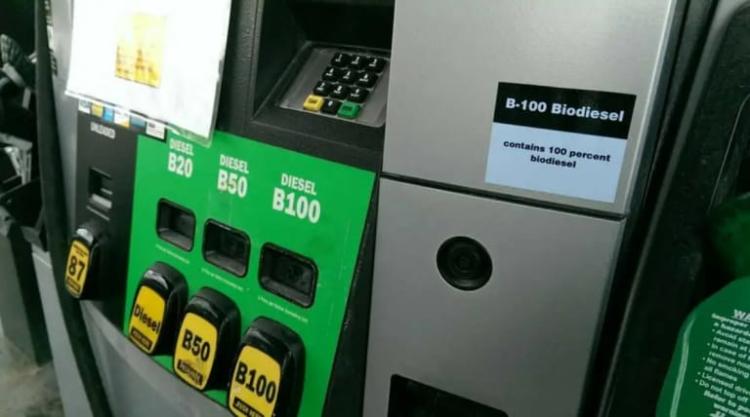Indonesia has officially started a six-month field trial for its B50 biodiesel blend, marking a major milestone in the nation’s push toward energy independence and sustainability. This initiative, led by the Ministry of Energy and Mineral Resources (ESDM), aims to evaluate the performance, efficiency, and environmental impact of diesel fuel containing 50 percent palm oil-based biodiesel.
The field test, which began in early October 2025, involves several transportation and industrial sectors across different regions of Indonesia. This program is part of the government’s long-term plan to transition toward renewable fuels and reduce dependency on fossil energy, following the successful implementation of B30 biodiesel nationwide in 2020.
The Road to B50 Biodiesel: A Decade of Progress
Indonesia has been at the forefront of biodiesel innovation in Southeast Asia. Over the past decade, the government has progressively increased the biodiesel blending rate—from B20 in 2016 to B30 in 2020. The B50 biodiesel project is seen as a natural progression, aligning with the government’s vision for achieving net-zero emissions by 2060.
According to the ESDM, this field trial will run for six months and cover approximately 50,000 kilometers per vehicle, testing various engines in both commercial and private fleets. The goal is to measure how the B50 blend performs in real-world conditions—covering parameters like engine durability, fuel efficiency, and emission levels.
The B50 fuel blend combines 50 percent Fatty Acid Methyl Ester (FAME) derived from palm oil with 50 percent conventional diesel. This formulation is expected to significantly cut greenhouse gas emissions while also improving Indonesia’s energy security. The project also involves major state-owned companies such as Pertamina, which is responsible for producing and distributing the new biodiesel blend.
Economic and Environmental Benefits of B50
The introduction of B50 biodiesel in Indonesia carries substantial economic and environmental implications. Economically, it helps Indonesia reduce its dependency on imported fossil fuels—a key factor in improving the national trade balance. In 2023 alone, biodiesel substitution saved the country more than USD 4.5 billion in fossil fuel imports.
Environmentally, the use of palm-based biodiesel contributes to lower carbon emissions. The ESDM estimates that full implementation of B50 could cut CO₂ emissions by up to 45 million tons per year. Moreover, by supporting the domestic palm oil industry, the program could strengthen rural economies, providing jobs for millions of smallholder farmers.
However, the program is not without challenges. Industry experts point out that higher biodiesel content may affect engine performance, particularly in colder regions or under specific mechanical conditions. That’s why the six-month field trial is crucial—it will provide technical data to refine fuel standards and infrastructure before full-scale rollout.
Challenges in Scaling Up the B50 Program
While the B50 biodiesel trial marks a breakthrough, scaling it nationwide will require solving several key issues. The first is ensuring a consistent supply of high-quality FAME. Indonesia currently produces around 13 million kiloliters of biodiesel per year, but the shift to B50 would nearly double demand. This means expanding production capacity while maintaining sustainability standards for palm oil cultivation.
Another challenge is infrastructure readiness. Fuel storage and distribution systems must be adapted to handle the higher biodiesel content, which is more prone to oxidation and contamination than regular diesel. Pertamina has already started upgrading its fuel terminals and blending facilities to accommodate the B50 rollout.
There’s also the international dimension to consider. As Indonesia pushes for higher biodiesel adoption, it faces scrutiny from trade partners in the European Union and other regions concerned about the sustainability of palm oil production. The government has responded by promoting stricter certification standards, including the Indonesian Sustainable Palm Oil (ISPO) scheme, to ensure the biodiesel program aligns with global environmental goals.
The Role of Biodiesel in Indonesia’s Energy Transition
Indonesia’s journey toward B50 biodiesel reflects a broader strategy to balance energy independence, sustainability, and economic growth. The government’s roadmap envisions a phased approach—B35 by 2024, B40 by 2025, and eventually B50 by 2030. The field test being conducted now could accelerate that timeline if results are positive.
The shift toward higher biodiesel blends also complements Indonesia’s push for electric vehicles (EVs) and other renewable technologies. While EV adoption is growing, biodiesel remains a practical bridge solution—especially for heavy-duty vehicles, maritime transport, and rural areas with limited charging infrastructure.
Energy analysts suggest that a combination of biofuels and electrification could help Indonesia reduce its fossil fuel use by up to 30 percent by 2035. The B50 initiative, therefore, is not only about fuel but also about setting the foundation for a cleaner, more diversified energy ecosystem.
Government Commitment and Industry Collaboration
The B50 biodiesel field trial is being jointly managed by the ESDM, Pertamina, and several automotive manufacturers, including Toyota, Isuzu, and Hino. Their participation ensures that vehicle performance and warranty conditions are fully considered during the testing phase.
Pertamina’s refining units in Dumai, Balikpapan, and Cilacap are central to producing the B50 blend. The company has already completed laboratory tests showing that B50 fuel meets current quality and stability standards. However, the upcoming field trial aims to validate those findings under diverse operational conditions.
Minister of Energy and Mineral Resources Arifin Tasrif emphasized that this trial is part of Indonesia’s commitment to green energy transition. “B50 is not just a target—it is a step toward reducing carbon emissions and building national energy resilience,” he said during the launch event in Jakarta.
Looking Ahead
If successful, Indonesia’s B50 biodiesel program could become a model for other developing nations seeking to balance economic development with environmental responsibility. The data collected over the next six months will determine whether the country can fully implement B50 by 2026 or 2027.
With strong government support, industrial collaboration, and growing public awareness of sustainability issues, the B50 initiative may well become a defining achievement in Indonesia’s renewable energy journey.
Read More






 Wednesday, 25-02-26
Wednesday, 25-02-26







